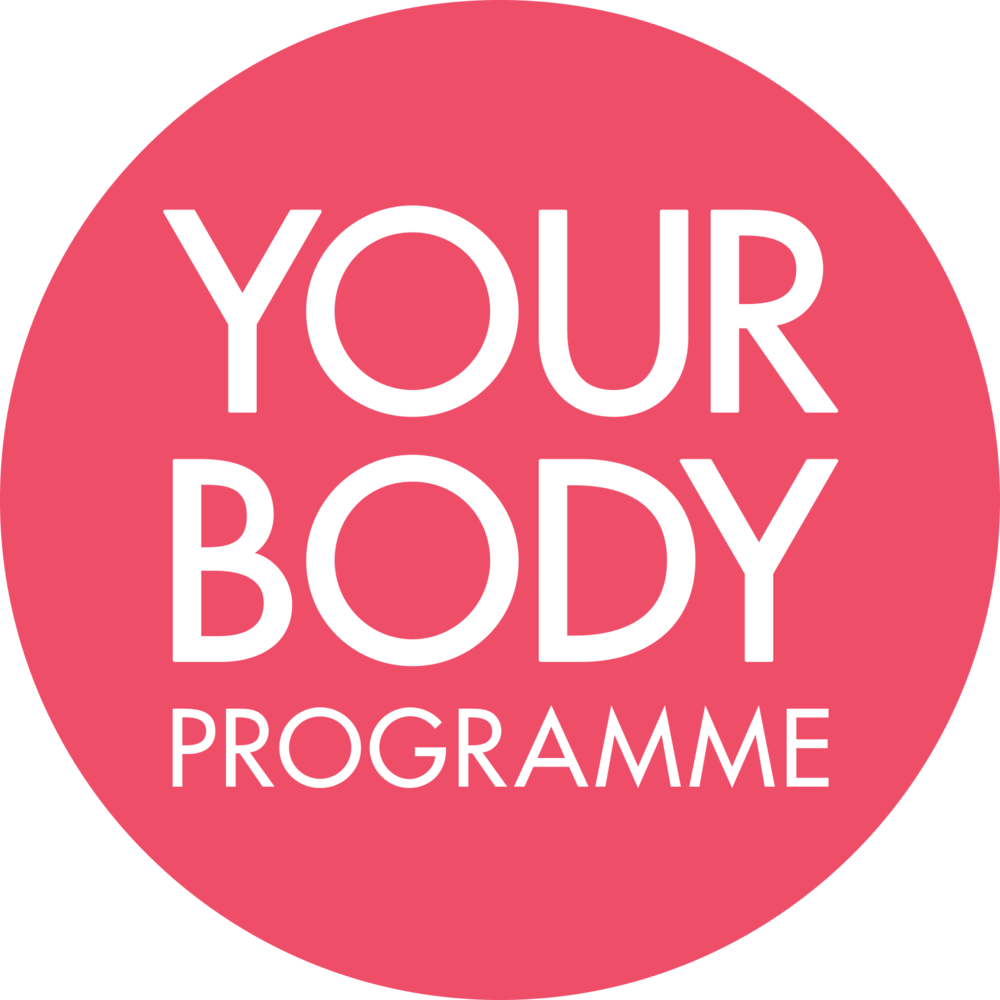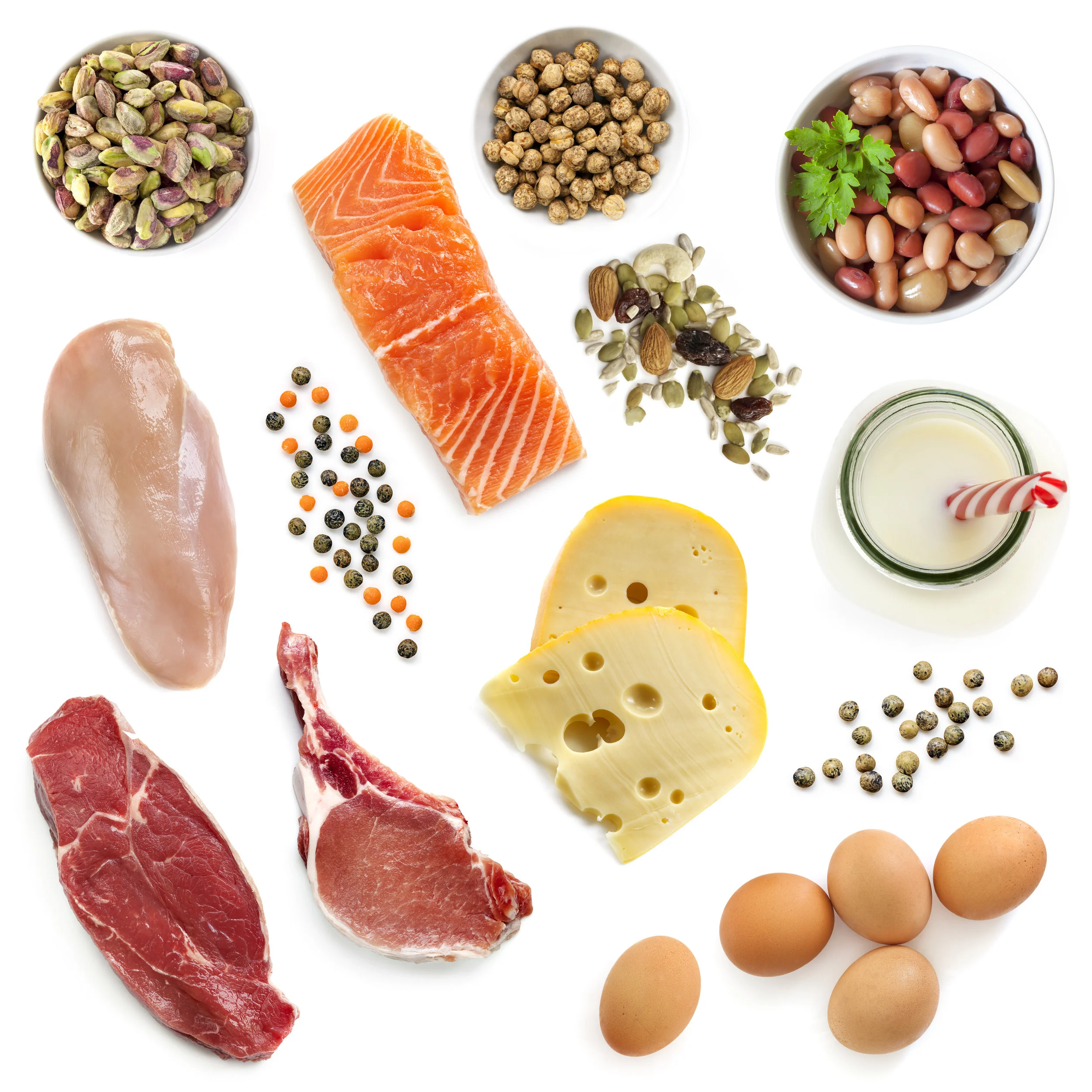Protein
It is important to make sure you are getting the correct amount of protein in your diet to allow your body to build and repair your muscles. Tissues, ligaments, hair, skin, nails and muscles are all made from protein, as well as hormones, enzymes and some chemicals essential for life.
What is protein?
Protein is made from chains of smaller molecules called amino acids. These are the most basic building blocks of your body. Your body requires twenty-one amino acids to build proteins, it can make twelve but the remaining nine need to be obtained from food. These are called essential amino acids. These are phenylalanine, valine, threonine, tryptophan, methionine, leucine, isoleucine, lysine and histidine. The body requires the correct amount of protein to provide it with these essential amino acids to build and repair. When you are training regularly it increases your body's demand for protein, as training damages muscles more than if you are sedentary. However, it’s still vital even for a sedentary person to consume adequate protein to prevent muscle loss and slowing of the metabolism. All the essential amino acids can be found in meat and fish but not in plants. When on a vegetarian or vegan diet it is important to eat a wide variety of plant foods to enable intake of all the essential amino acids. This is normally achieved by combining pulses with cereals such as rice with lentils or soya and quinoa.
Good sources of protein from plants include: pulses (peas, beans, lentils, chickpeas, soya products –always organic and from whole beans), whole grains (wheat, oats, rice, barley, buckwheat, millet, pasta, bread), nuts (brazils, hazels, almonds, cashews) and seeds (sunflower, pumpkin, sesame).
What does protein do?
Protein performs a wide variety of jobs including cell signalling (insulin is a protein), DNA replication and repair, muscle, connective tissue, hair, and nail growth. Everyday not just the muscle cells but all body cells die and need to be repaired and replaced. This process is increased through exercise, as you are essentially damaging muscle fibres so that they grow back bigger and stronger.
Protein is needed for proper digestion, liver detoxification- toxin elimination, provides energy, supports immune function, serve as antioxidants, neurotransmitter production to balance mood as well as helping with hormone production,
Amino acids also play a direct role in the regulation of blood flow and blood pressure and the production of nitric oxide—a potent vasodilator affecting everything from cardiovascular to brain health.
It’s obvious that not getting the correct amount of protein per day will affect the functioning of your body and therefore your results.
Making sure you have the right amount of protein will help you to build muscle, burn fat, preserve lean mass and increase satiety. There’s a lot of conflicting information as to how much protein you should eat per day. YBP performed a meta-analysis of many studies for us to give you what we believe to be your ideal amount of protein.
Like carbohydrates, overeating protein can also cause fat gain. Excess protein will be converted to glucose and if it’s not used for energy it will be converted into fat. Therefore your intake of protein should remain consistent on both training days and rest days as your body is in a state or recovery and repair throughout the week and therefore requires it.
Essential amino acid function
HISTIDINE: Histamine precursor, anti inflammatory, anti-fungal.
ISOLEUCINE: Muscle repair, energy, stamina.
LEUCINE: Muscle building muscle recovery, fat loss,
LYSINE: Immune system support, collagen production, blood sugar support.
METHIONINE; Anti-inflammatory, keritin production, detoxification.
PHENYLALANINE: Precursor of dopamine, tyrosine, noradrenalin and adrenalin.
THREONINE: Fat metabolism, immune and nervous system function.
TRYPTOPHAN: Precursor of serotonin and niacin
VALINE: Muscle growth and repair, energy production ,


